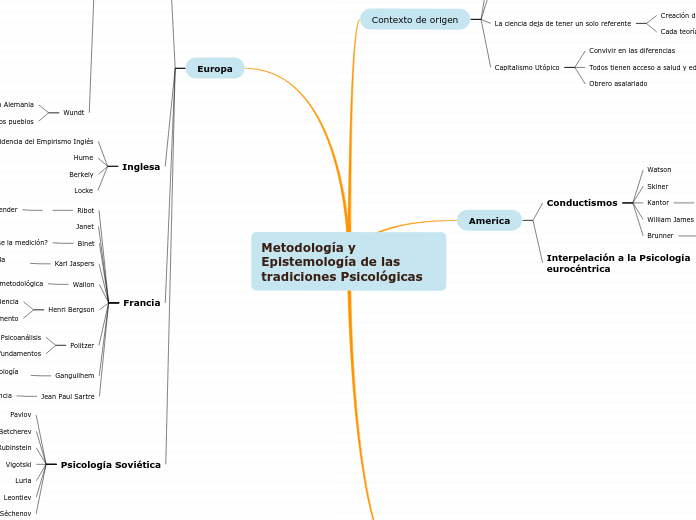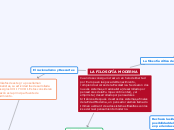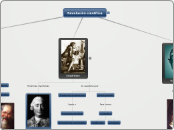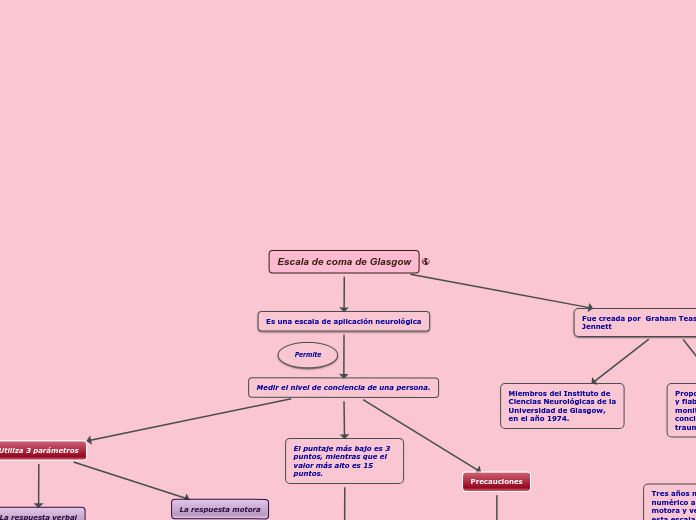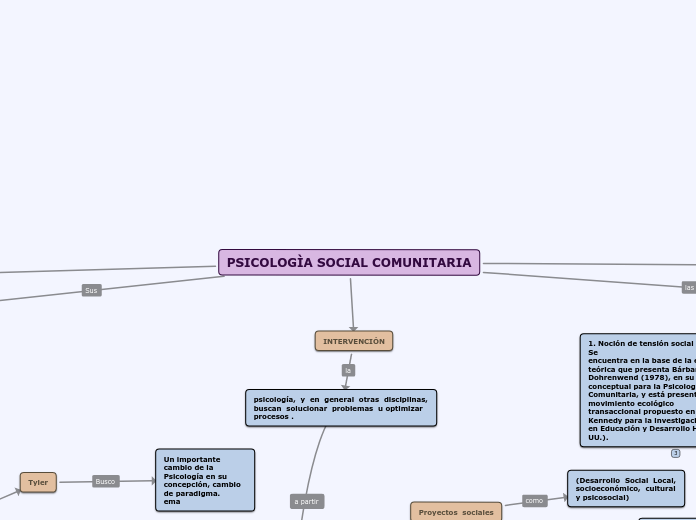Metodología y Epistemología de las tradiciones Psicológicas
Rivers have always been essential for human life and settlement. A source for drinking, the source of food, and a way to transfer goods from one place to another. They are essential in the environment of rainforest and wetlands.
Para hablar de una disciplina
Historia de la Ciencia
Dimensiones culturales
Base Filosófica
Histórico Cultural
Europa
The Volga is the longest river in Europe. The waters of the Volga are used to irrigate the steppe regions of southern Russia. Because of its importance in the country, the Volga has mythological status in Russia, and many iconic sites are found along its banks
The Danube is the second-longest river in Europe. Travelers can experience many of the river's sights by embarking on a cruise along its waterways. Danube River Cruises, which are offered by Viking Cruises, typically stop in Cologne, Budapest, Nuremberg, Belgrade and Krems. Following the river is a way to experience several Eastern European cities in one trip. Famous monuments, such as the Hungarian Parliament, have been erected on its coast.
Psicología Soviética
Séchenov
Leontiev
Luria
Vigotski
Rubinstein
Betcherev
Pavlov
Francia
Jean Paul Sartre
Psicología de la conciencia
Ganguilhem
En un corto texto crítica demoledora a la Psicología por la definición de su objeto
Politzer
Crítica a los fundamentos
Crítico a la Psicología y el Psicoanálisis
Henri Bergson
Fundamento
Leibniz
Inmortalidad del alma de los seres no racionales
Dualismo de eficiencia -conciencia
Wallon
Postura conceptual, categorial y metodológica
Karl Jaspers
Aporte sobre la angustia y la ansiedad desde la perspectiva no naturalista.
Binet
¿Cómo no debe usarse la medición?
Janet
Ribot
Inglesa
The Danube is located in Central and Eastern Europe.
The Danube flows through 10 countries, more than any other river in the world. Originating in the Black Forest in Germany, the Danube flows southeast for 2,850 km, passing through or bordering Austria, Slovakia, Hungary, Croatia, Serbia, Romania, Bulgaria, Moldova and Ukraine before draining into the Black Sea. The mouth of the Danube is the Danube Delta. The greater part of the Danube Delta lies in Romania, with a small part in Ukraine (Odessa Oblast).
Tributaries :Iller, Lech, Altmühl, Naab, Regen, Isar, Inn, Ilz, Enns, Morava, Rába, Váh, Hron, Ipeľ, Sió, Dráva, Vuka, Tisza, Sava, Tamiš, Great Morava, Mlava, Karaş, Jiu, Iskar, Olt, Osam, Argeș, Ialomița, Siret, Prut.
Locke
Berkely
Remember that this is the original point from which the river flows. Type in the answer.
Hume
Incidencia del Empirismo Inglés
Danube River flows through 9 countries in Europe. Type them in.
Alemania
The Volga is the longest river in Europe with a catchment area of 1,350,000 square km.
Eleven of the twenty largest cities of Russia, including the capital, Moscow, are located in the Volga's drainage basin. Rising in the Valdai Hills 225 meters above sea level northwest of Moscow and about 320 km southeast of Saint Petersburg, the Volga heads east past Lake Sterzh, Tver, Dubna, Rybinsk, Yaroslavl, Nizhny Novgorod, and Kazan. From there it turns south, flows past Ulyanovsk, Tolyatti, Samara, Saratov, and Volgograd, and discharges into the Caspian Sea.
Tributaries: Kama, Oka, Vetluga, and Sura. The Volga Delta has a length of about 160 kilometers and includes as many as 500 channels and smaller rivers.
Wundt
The source of a river, also called headwaters, is the original point from which the river flows. Type in Volga's source.
Estudio de la Psicología de los pueblos
Primer Laboratorio en Alemania
Criticado por los empiristas
Brentano
Contexto
Fundamentos de la Filosofía Idealista
Shelling
La naturaleza carece de conciencia, en donde se manifiesta el yo absoluto
Critica al dogmatismo referido a la Filosofía de la Naturaleza
Triada: sujeto, objeto y representación
El Yo y el no yo se condicionan el uno al otro. No existe un sujeto sin su propio objeto. Están en unidad.
Yo como principio de la Filosofía. Yo es yo
Fichte
Problema de los fundamentos de la experiencia: desde el objeto, la cosa, el no yo; y desde la función del sujeto en ella (la inteligencia del experimentador)
Acción moral de ella depende la creación de todo el mundo
Plantea la ruptura de la realidad Metafísica de Kant. Surge el Idealismo Ético nueva concepción voluntarista del mundo y la vida.
Camina en la perspectiva de Kant en cuanto al problema ético moral, el conocimiento y la búsqueda de la plenitud del sujeto, pero se genera una ruptura.
Idealista sobresaliente
Kant
Tres juicios que no son objetos de la razón: Dios, Inmortalidad y la verdad.
Hombre es un ser que sabe que puede conocer, lo que tiene que hacer y lo que puede esperar.
Preguntas: ¿Qué puedo hacer?, ¿Qué debo hacer?, ¿Qué esperar? ¿Qué es le hombre?
Los ejes del desarrollo de su pensamiento: Metafísica, Moral, Religión y Antropología
Lo práctico
Lo Moral
Voluntad de acción
Capitalismo diferente
Religioso
Tesis sobre Aristoteles
Lugar dónde se legitima la Psicología
America
North America
In the 18th century, the river was the primary western boundary of the young United States, and since the country's expansion westward, the Mississippi River has been widely considered a convenient dividing line between the Eastern, Southern, Midwestern United States, and the Western United States.
South America
Amazon River, the greatest river of South America and the largest drainage system in the world in terms of the volume of its flow and the area of its basin.
Interpelación a la Psicología eurocéntrica
Main tributaries - Marañón, Napo, Japurá/Caquetá, Rio Negro/Guainía, Putumayo, Trombetas, Ucayali, Javary, Juruá, Purús, Madeira, Tapajós, Xingu.
The Amazon and its tributaries flow through the countries of Peru, Bolivia, Venezuela, Colombia, Ecuador, and Brazil before emptying into the Atlantic Ocean 6, 437 km (4,000 miles) from the Amazon's headwaters high in the Andes mountains of Peru.
Ignacio Martín Baró
Teología de la liberación
Alberto Merani
The Amazon flows through 6 countries from South America. Type them in.
Dialéctica y Marxismo
Conductismos
Its source is Lake Itasca in northern Minnesota and it flows generally south for 2,320 miles (3,730 km) to the Mississippi River Delta in the Gulf of Mexico.
The main stem is entirely within the United States. Tributaries - St. Croix River, Wisconsin River, Rock River, Illinois River, Kaskaskia River, Ohio River, Minnesota River, Des Moines River, Missouri River, White River, Arkansas River.
The river either borders or passes through the states of Minnesota, Wisconsin, Iowa, Illinois, Missouri, Kentucky, Tennessee, Arkansas, Mississippi, and Louisiana.
Brunner
Psicología y Cognición
William James
Psicología pragmática
Kantor
The source of a river, also called headwaters, is the original point from which the river flows. There are different types of sources: lake, marsh, spring or glacier.
Subtopic
Skiner
Try to state the length either in miles or in kilometers.
Watson
Mississippi flows through 10 different states, forming the largest delta in North America.
Type in some of these states.
Contexto de origen
Capitalismo Utópico
Obrero asalariado
Todos tienen acceso a salud y educación
Convivir en las diferencias
La ciencia deja de tener un solo referente
Cada teoría tiene su instrumentación
Creación de nuevas teorías
Cambio del paradigma Newtoneano
Aparecen estudios de
Radiología
Genética
Partir de la Psicología en el último cuarto del siglo XIX
